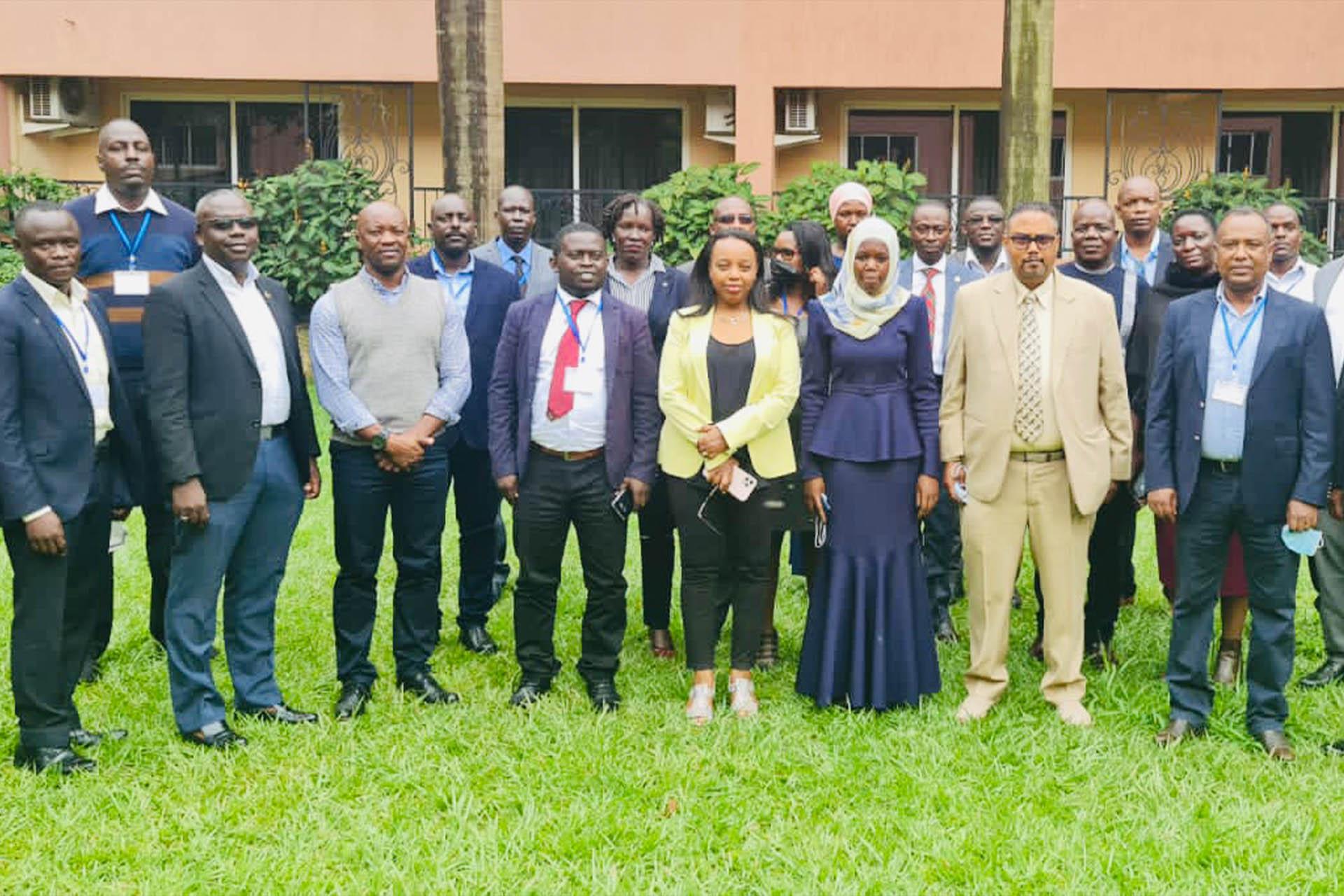24 March 2022, Entebbe-Uganda: The IGAD Security Sector Program (IGAD SSP) has successfully concluded a three-days national training on The Role of Technology and Social Media Platforms as Recruitment Tools by Terrorist Networks and the Challenges for Security Institutions for Uganda senior officials held on 22-24 March 2022.
The objective of the training was to equip trainees with an advanced knowledge and practical skills on the use of technology specifically Internet and Social Media Platforms to effectively craft and utilize preventive and countering terrorism measures by providing the tools and means of surveillance, tracking and intercepting recruitment methods of terrorist groups in order to strengthen the capacity of Member States’ Security Institutions and their ICT infrastructure. The training also aimed to strengthen the interdepartmental cooperation among the relevant agencies specifically information, communication, and technology units with the law enforcement agencies.
The training was officially opened by the Director of IGAD SSP, Commander Abebe Muluneh. Commander Abebe thanked the Government of the Republic of Uganda for hosing this very important and timely training. In his opening remark, he emphasized on the use of the Internet and technology for malicious purposes by criminal and terrorist groups and said “Despite its role in encouraging political participation and promotion of development, social media has also led to a number of less desirable impacts including online payment fraud, child sexual exploitation, cyber-dependent crime, and online radicalisation and recruitment of terrorists. Social media increase opportunities for radicalisation by providing terrorists with a tool to recruit, train and communicate with their followers, sympathisers and other audiences.” He emphasized on the need of a proactive approach and the development of relevant strategies and policies to prevent online radicalization and recruitment through the use of technology.
The training was conducted by senior experts from the Region including an assistant professor from the Addis Ababa University Information Technology Institution as well as a Senior Police Commission from the Ugandan Police Force who have shared their vast experience in the following thematic areas:
- Cybersecurity
- Technology and Terrorism
- ICT architecture, Internet access, Internet Security, and vulnerability in Uganda
- Technology, Social Media and Terrorism: Ugandan perspective
- Social media presence – terrorist networks vis-à-vis security institutions – national and regional
- The Data and Social Media Landscape in Uganda: Ugandans online
- Vulnerable people, potential terrorists, and sympathizers of terrorist groups targeted through online recruitment – identification, assessment, approach, handling
- Legal instruments on technology, social media and terrorism:
- Information versus privacy, human rights violations, access to online information
- Internet surveillance – availability, limitations, access, utilization, capacity
- Online investigation tools and mechanism
- Dark net and dark web – concepts, access, usage, tools
- Digital evidence – techniques, mechanisms, analysis, etc
- Recruitment methods and tools through technology – counter messaging approaches, discrediting and hindering dissemination/popularization
The training brought together about 25 senior practitioners from the Counter Terrorism Intelligence, Police, External Security Office, Defense Intelligence, Special Forces Command, Office of Director of Public Prosecution, Military Intelligence, Internal Security Agency, Ministry of Foreign Affairs, and the Ministry of Information Communication Technology.
One of the mandates of the IGAD Security Sector Program (IGAD SSP) is to enhance the institutional and human capacities of Member States to effectively address the emerging, evolving, and existing transnational security threats (EEE-TSTs) in order to contribute to regional peace and stability and foster enabling environment for regional integration and development of the sub-region, under which this training was conducted.
The training was conducted with the financial support from the European Union Trust Fund (EUTF) through the Austrian Development Agency (ADA) under the IPPSHAR Program.

